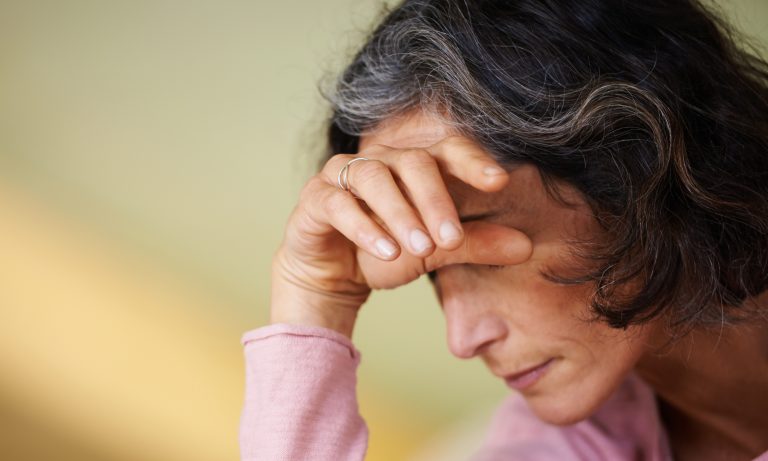Carer Stress: What are the Risks?
When you are responsible for the care of a senior loved one, the stresses and strains of everyday life are amplified. Juggling work and family with looking after an elderly relative increases the risk for caregiver role strain. This is especially true regardless of whether the family member you are caring for has a health issue like Alzheimer’s disease that affects memory, or a condition that leaves your loved one physically frail.

Carer Stress often goes unrecognised. In the hustle and bustle of a busy life, it may not be detected until the family carer suffers a health crisis of their own. Some aging experts believe “carer stress” should actually be referred to as “carer distress” because of the toll it can take on the physical and emotional health of an adult child or other family member.
Carer Stress symptoms are very similar to common stress and include feeling overwhelmed, being pessimistic, displaying an inability to relax, and having widespread aches and pains (among many other things).
What is Carer Stress and what are the causes?
Carer stress is related to the stress involved with taking care of a loved one and the general health of family members.
There are seven factors that can be used when assessing a family carer’s risk.
Carer stress assessment factors include:
- Gender Women are much more likely to suffer from family caregiver stress. Largely because they deliver the bulk of care. They are also more likely to provide the physically and emotionally difficult types of personal care for a senior loved one such as bathing and hygiene. If male siblings are involved in a parent’s care, it is typically to help with tasks such as mowing the yard, paying bills or completing home repairs. These are less emotionally-charged types of support
- Family Caregiving Spouses Caring for a spouse places older adults at the highest risk for family caregiver stress and strain. Women are especially vulnerable because they often feel duty-bound to handle the physical needs of caring for their partner even when they are frail themselves. It can cause their own health to significantly decline
- Where You Live If the person you are providing care for lives with you, statistics show you are probably providing almost double the hours of care that you would if they lived independently. These family caregivers also tend to be members of the sandwich generation, the term used to refer to people who are caring for elderly parents and young children simultaneously
- Alzheimer’s and Dementia Family caregivers for people with Alzheimer’s or dementia often struggle to cope with very challenging behaviors. Among them are wandering and agitation. When these safety issues are a routine part of the day, the risk for family caregiver burnout is high
- Types of Care Adult children and family members who cope with a senior loved one’s incontinence, memory loss or sleep problems are more likely to report greater levels of stress. Family caregivers often cite a lack of confidence in how they are handling these types of problems as a reason for their distress
- Choice Another determining factor is whether or not the family caregiver felt they had a choice in providing care. The adult child who lives closest to their parent or one who doesn’t get help from siblings may also struggle to manage their feelings of resentment and frustration with the situation. This situation creates even more stress for the family caregiver
- Sandwich Generation Women who are sandwiched between their parents’ needs and those of their own children often have a third layer of stress created by their career
Caregiver role strain interventions
There are steps you can take as a family carer to decrease the carer stress you are experiencing.
Some suggestions to help you cope include:
- Use in-home care or respite services on a routine basis to help with your senior family member’s care
- Ask for and accept help. Many family caregivers feel obligated to provide all of the care and support their loved one requires. Not only is it difficult to do, it can put you both at risk for illness or injury. Make a list of the tasks others could realistically help with and ask other family members to help with those specific activities
- Set reasonable expectations for yourself and others. It may be that your brother doesn’t do things exactly like you do when he helps your aging parent. Unless he is putting your senior loved one at risk for injury, let his way be good enough. Others will be more inclined to help when they don’t feel they are being criticised for how they complete tasks
- Talk with your GP and make sure they know you are a family carer. The GP may want you to take extra steps to protect your own health such as monitoring your blood pressure at home or taking a vitamin supplement
- The final tip is to take care of you. This may be the most difficult one for family caregivers to accept, but making time to take a brisk walk five days a week and to eat a good diet can help you stay healthy during this time
Aged Care Placement Guide

Aged Care Planning in the Holiday Season
ResiCare Financial Changes - July 2025
Higher Everyday Living Fee (HELF)
Guide to Residential Care
Eligibility and Assessment
Residential Care Financials
Hints and Tips
Selecting the Aged Care Home
Admission Day
Transition and Settling In
Residential Care STAR Ratings